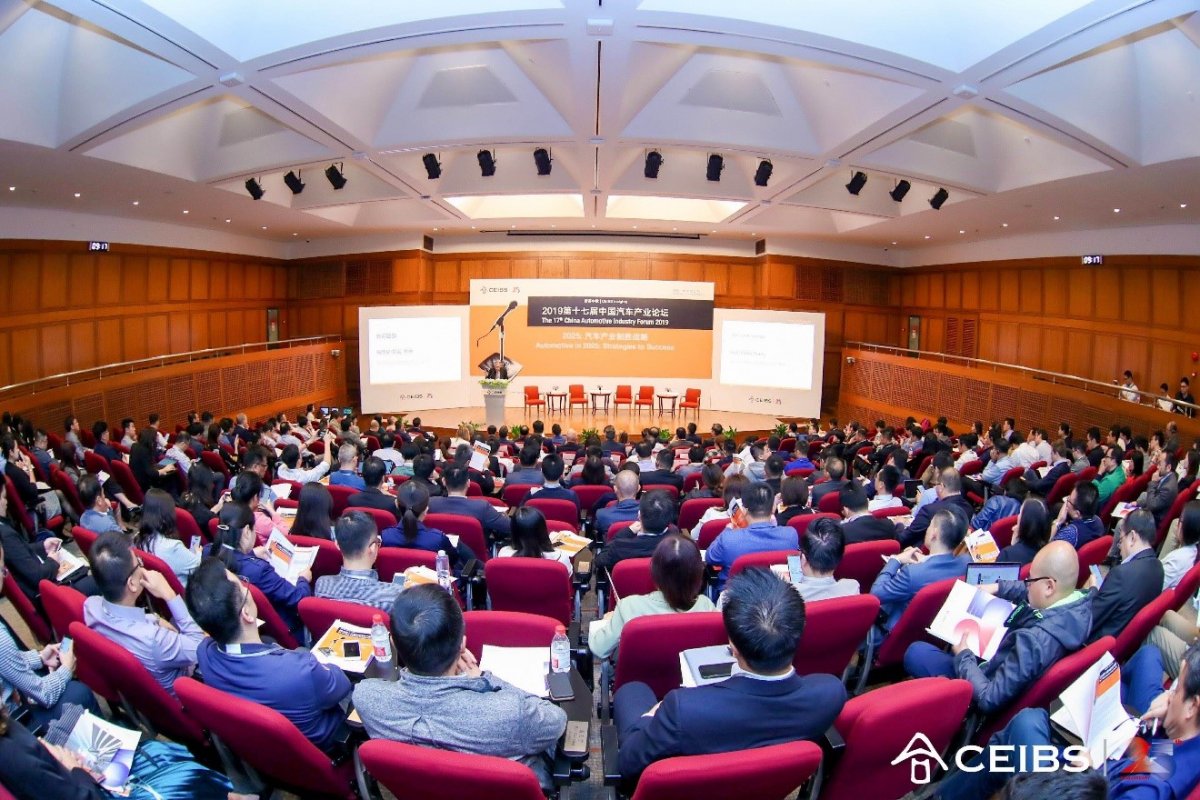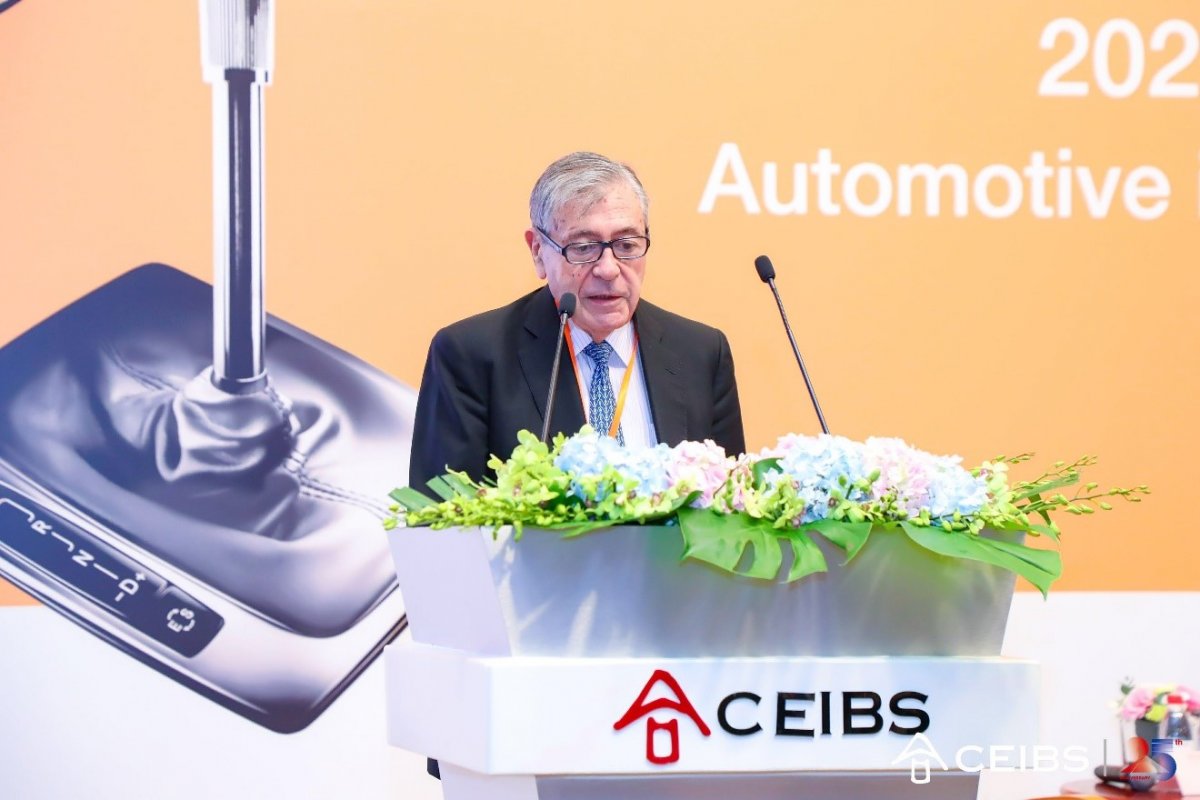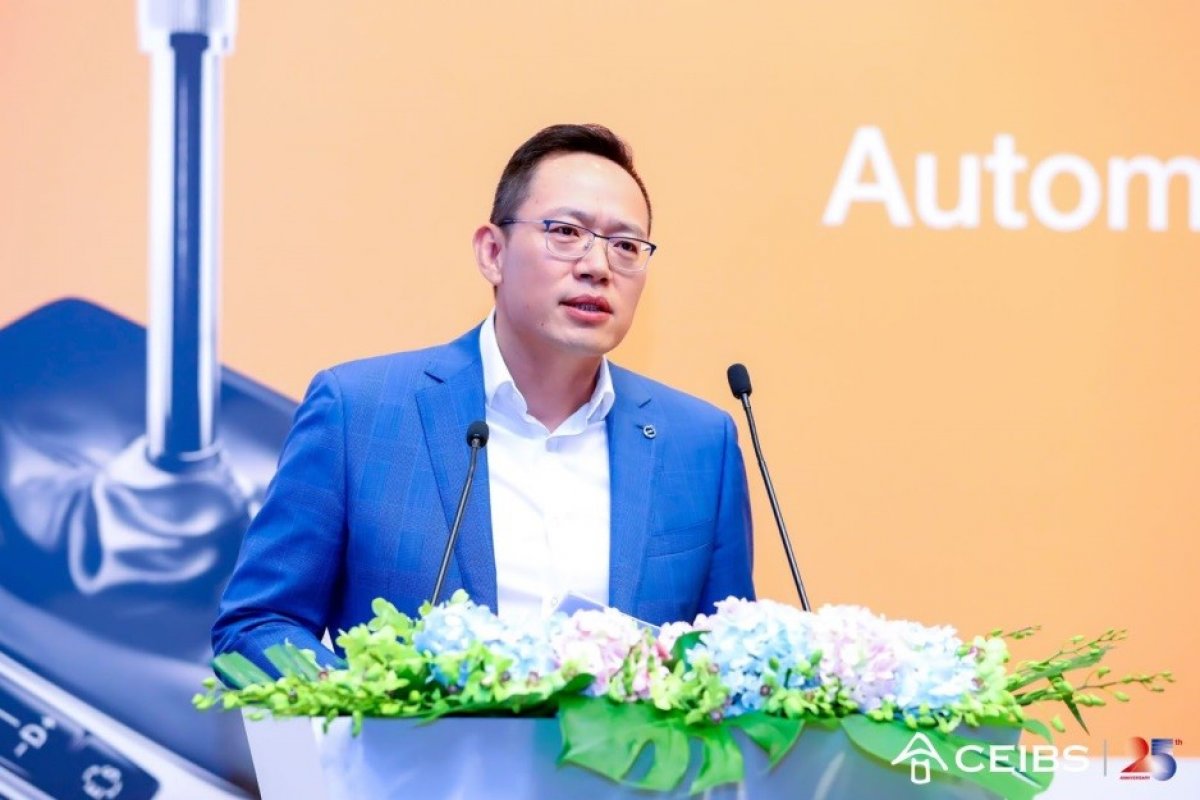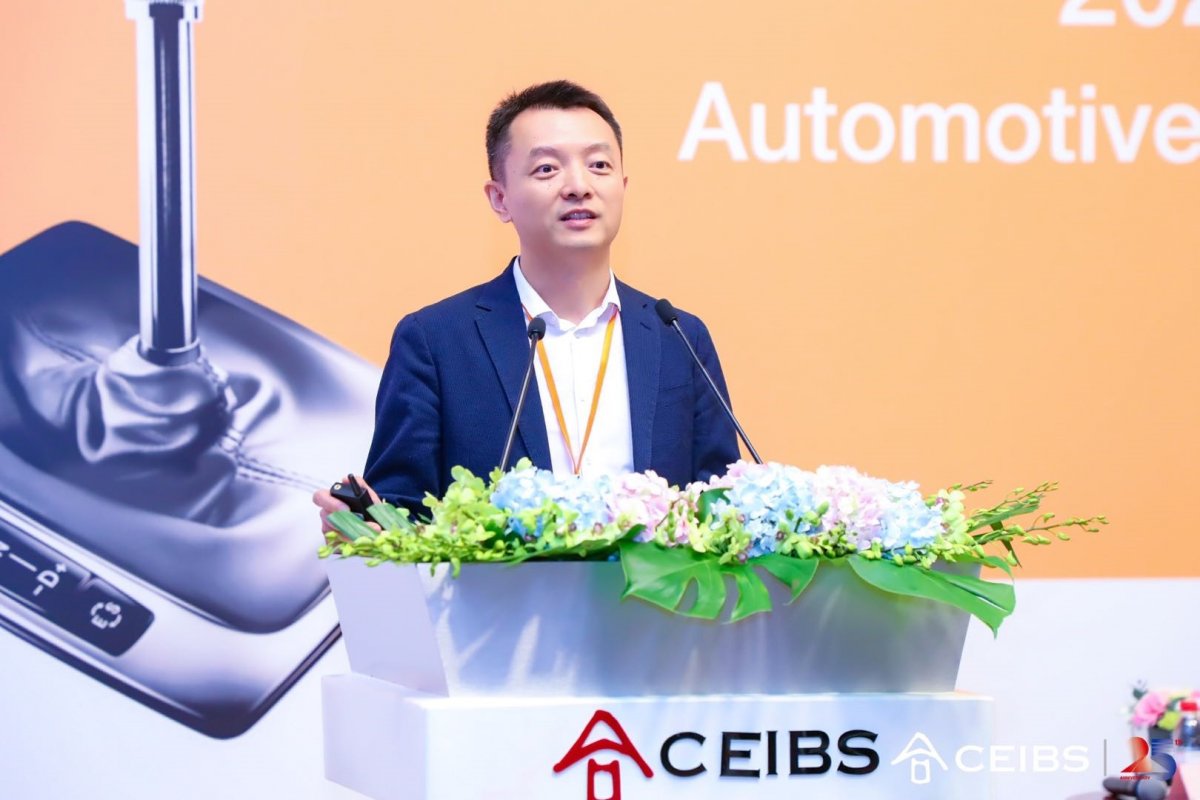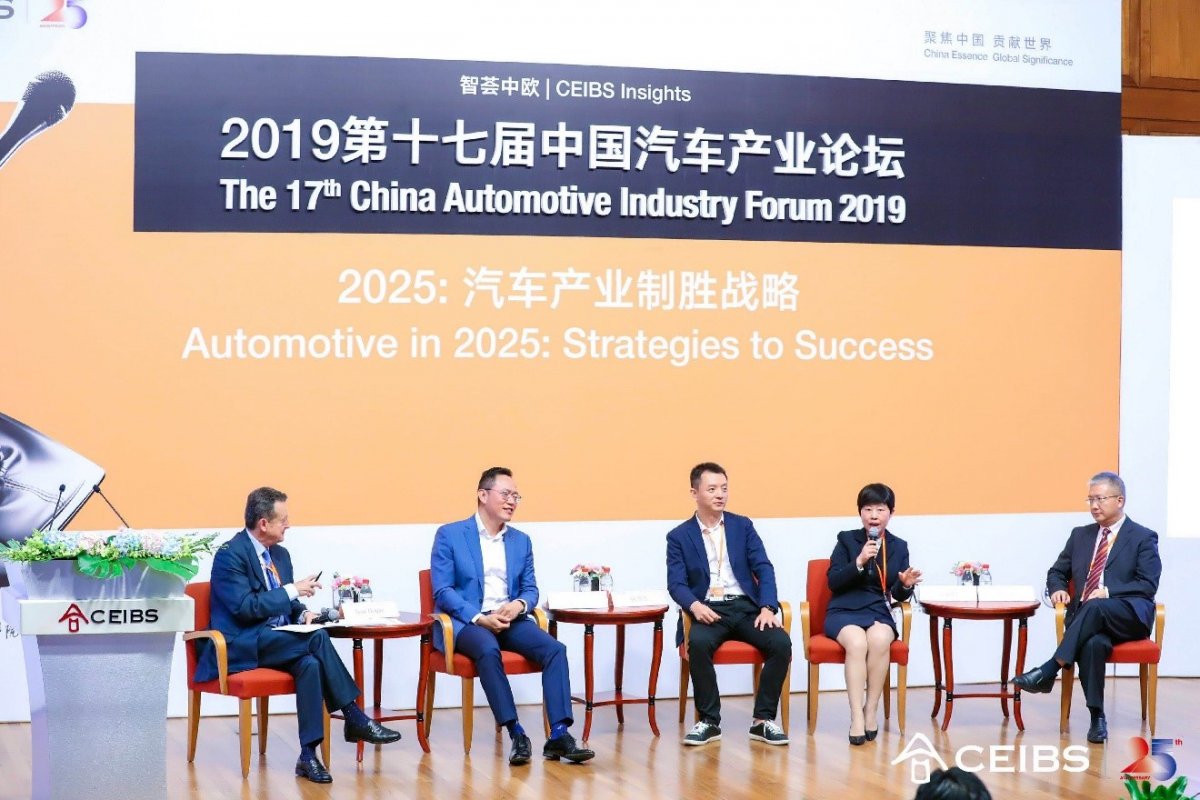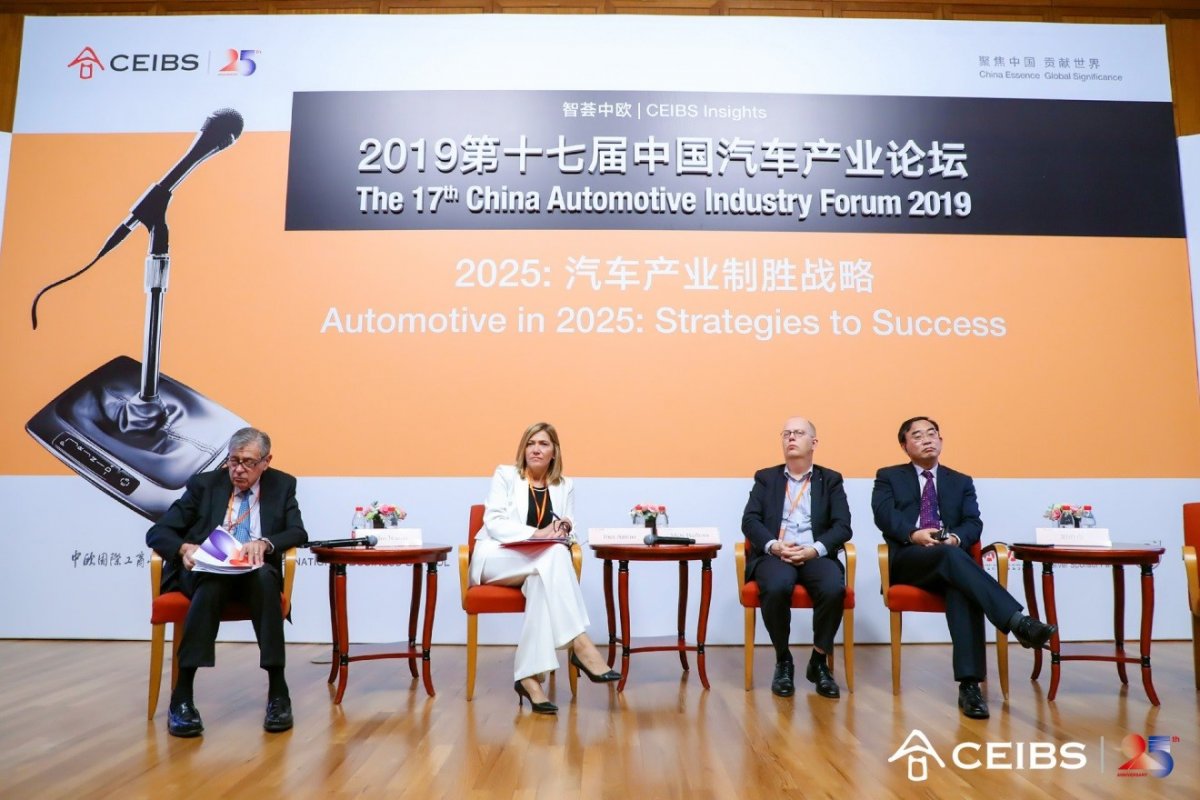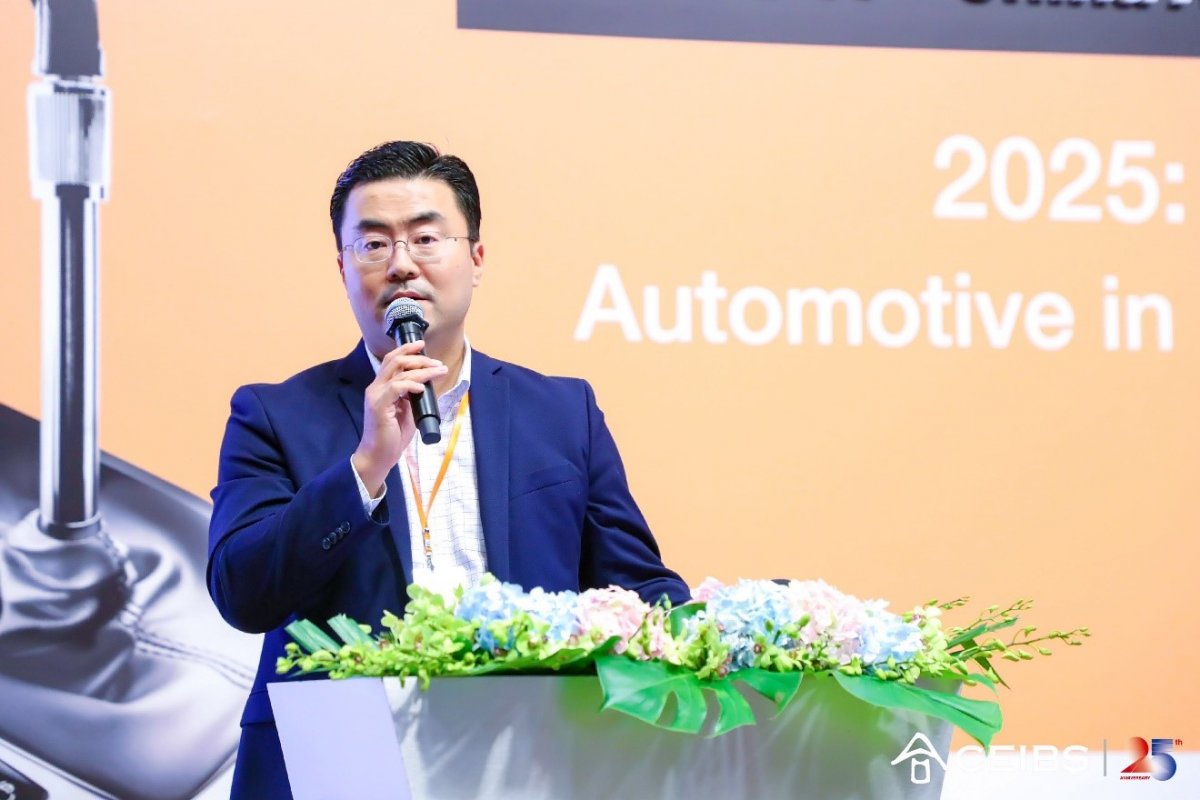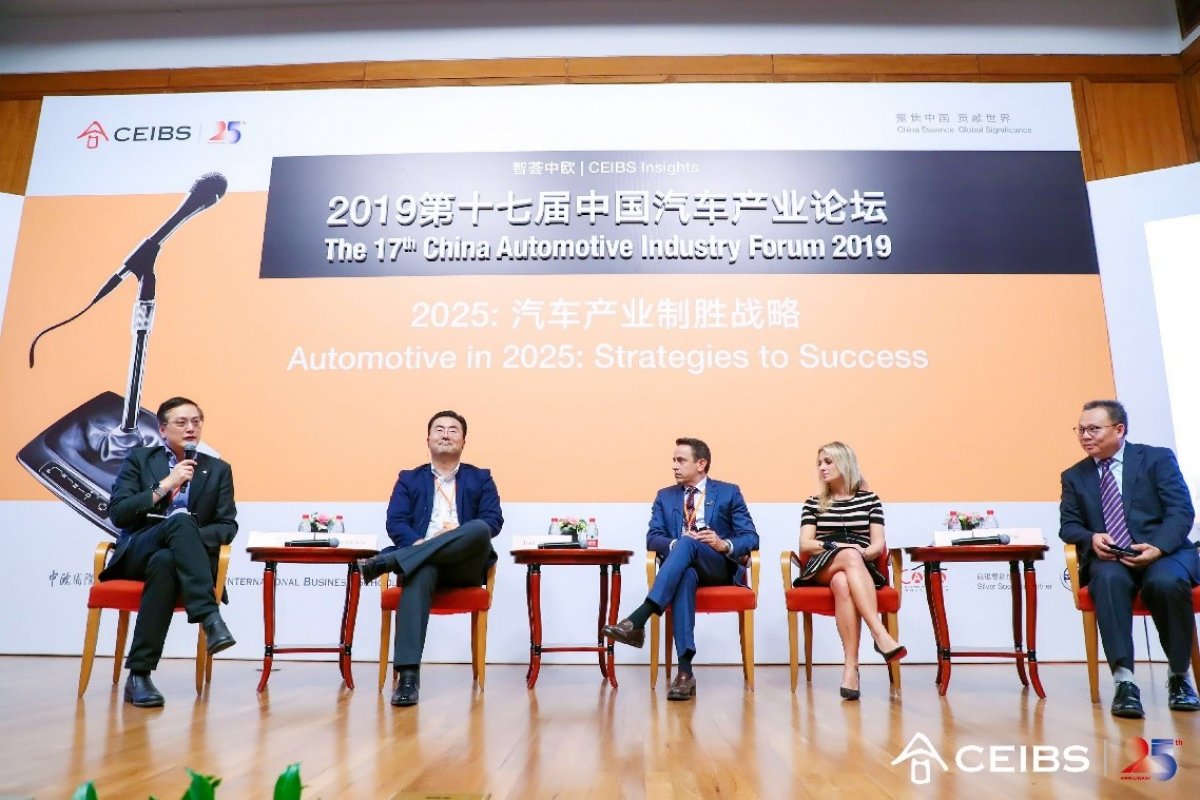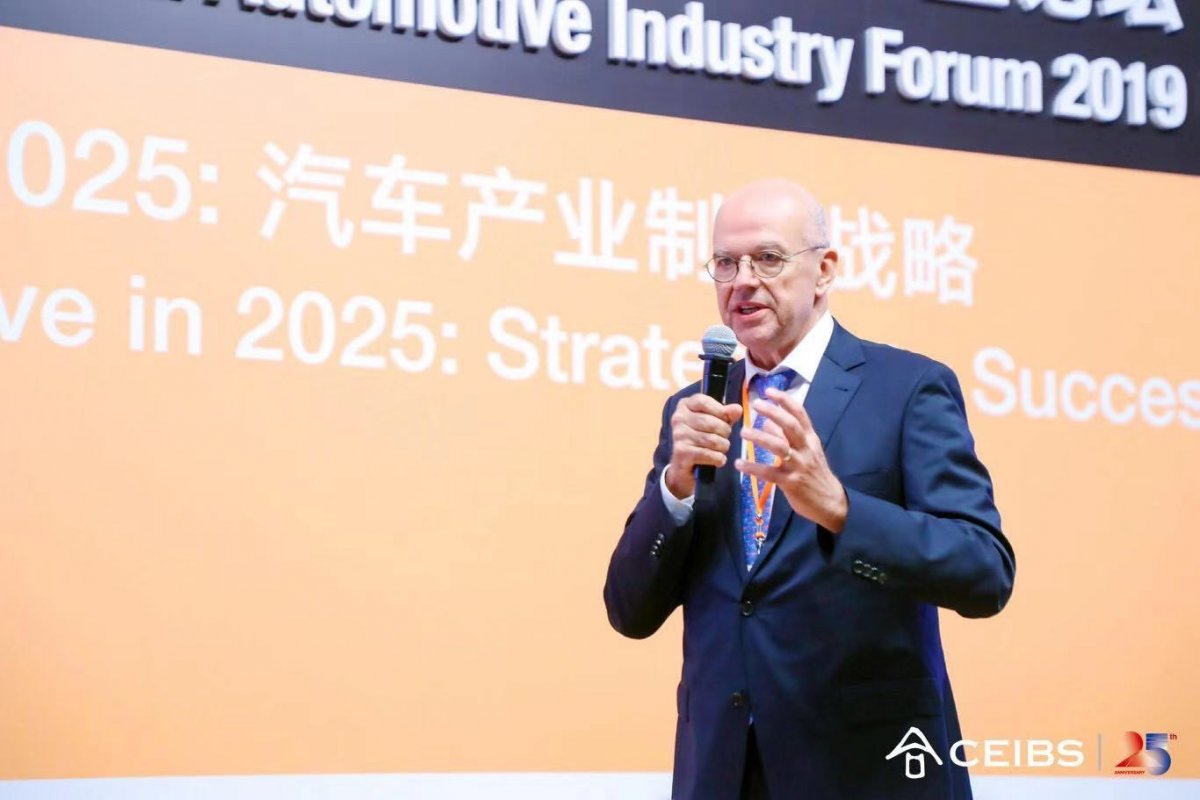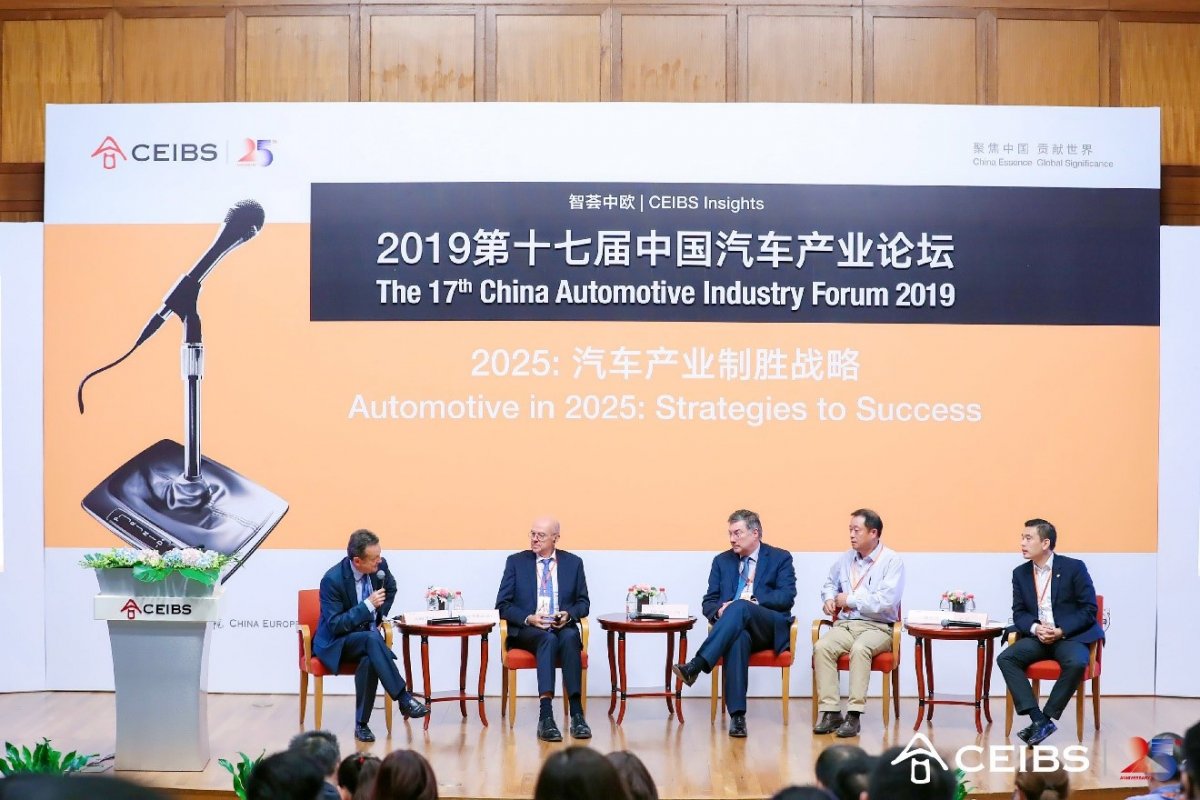CEIBS 2019 Auto Forum: Established Car Manufacturers Face Major Tech Challenge
October 19, 2019. Shanghai – A new era of electric vehicles and the demands of “smart cities” pose a huge challenge to the motoring sector’s establishment, delegates at CEIBS Automotive Industry Forum 2019 heard.
The event, co-organised with CEIBS’ Alumni Auto Industry Association, brought together government officials, scholars, industry executives and school leadership to share their views on the latest trends and prospects for the global automobile industry today.
In his welcome address, CEIBS European Honorary President Professor Pedro Nueno noted CEIBS must help explore how the auto industry, one of the most significant sectors in the world, can be reshaped to meet the challenges of the future.
An audience of nearly 350 guests heard how the auto industry faces three major challenges – shifting to renewable energy, ensuring environmental sustainability, and overcoming traffic congestion. Moreover, the rise of new technologies, growing scrutiny from regulators and increasingly keen competition pose unprecedented challenges for auto manufacturers.
Other themes emerging during the conference were the challenges and opportunities posed by emerging players entering the fray with electric, smart and connected vehicles, and how long-established auto manufacturers faced decline if they are unable to adapt to the changing landscape.
The forum addressed four themes; namely “Connected and Automated Vehicles”, “Smart Cities”, “Future of New Energy/Clean Cars” and “Consumers’ Vision on Future Mobility”.
Yuan Xiaolin, Senior Vice President, Volvo Car Group and President and CEO, Volvo Car Asia Pacific, emphasised that safety was most crucial to automatic driving. A huge ecosystem to support this development would require cross-industry collaboration, he said, rather than a go-it-alone approach. As products gradually become highly homogenised in this ecosystem, differentiation would pose the biggest challenge for car manufacturers, he argued.
Cham Zhong (EMBA2017), Vice President of Tencent, noted that as supply-side reform was gathering momentum across China, players in the auto industry should tune in to consumers’ mobility needs in the digital era, while focusing on autonomous driving and the internet of vehicles.
Ivan Hodac, Founder and President of Aspen Institute Central Europe, then moderated a panel discussion. Yuan Xiaolin; Cham Zhong; Renée Wang, Senior Vice President, ZF Asia Pacific Operations and President, ZF China; and Dr. Hu Jianping, CEO of Haylion Technologies discussed whether public transportation should be given priority in the upcoming era of autonomous driving and who should assume liability for a driverless car accidents. The panellists agreed that these issues should be considered in connection with other urban developments and the wider environment such cars operate in.
During a panel discussion on “Smart Cities”, Ines Anitua, CEO of AIC-Automotive Intelligence Center, Bilbao; Prof. Zhang Lijun, Dean of the School of Automotive Studies at Tongji University; Mats Harborn, Executive Director of Scania China Strategic Office; and Liu Zhiyan, Director of Urban Economy Studies, Dept. Institute for Urban and Environmental Studies at the Chinese Academy of Social Sciences put forth their views. The experts pondered a more precise definition of “smart city” and emphasised the role of cloud computing and big data in shaping the exact meaning of this concept.
Also speaking at the event was Lou Zhouren, President of CEIBS Alumni Auto Industry Association. The association was founded in 1994, is one of the school’s largest groups of its kind with nearly 800 members, and has provided tireless support for the annual automotive forum at the school.
Dr. Heung-Soo Kim, Vice President of Corporate Product Strategy, Hyundai Motor Company, also delivered a speech which referenced the future of new energy and clean cars. Dr. Kim believed that, with increasingly strict emission standards in place, internal combustion engines would be phased out to speed up the electrification of cars. Nevertheless, he added, a shift to electrification across the auto industry would face some hurdles, including the unprofitability of electric cars and the shortage of charging stations.
Peter Zhou (MBA2000/CMO2012), a consultant with Tencent Auto Intelligence, moderated the next panel discussion, in which the four panel guests offered their insights on the prospects for emerging new-energy vehicle manufacturers.
Thierry Willemarck, Deputy President for Mobility at FIA, then delivered a speech on the theme of “Consumers’ Future Mobility Vision”. He described the new generation of consumers’ mobility characteristics and spending power. He also noted that as consumers were not keenly aware of the benefits brought by new technology, the auto industry should take a holistic approach to providing them with more effective mobility services.
In a panel discussion moderated by Ivan Hodac, Thierry Willemarck; Dominik Declercq, Chief Representative of ACEA Beijing Office; Zhong Lixin (EMBA2001), Board Director of SAIC Motor; and Jin Jun, Partner of PwC China Auto Consulting arrived at a consensus on consumers’ future mobility vision. They believed that the auto industry would need to break fresh ground in mobility services, and that the Chinese and Western models would diverge sharply.
In his closing address, Prof. Pedro Nueno thanked all those present for an engaging day of debate on the sector, and extended his congratulations on the success of 17th China Automotive Industry Forum.







